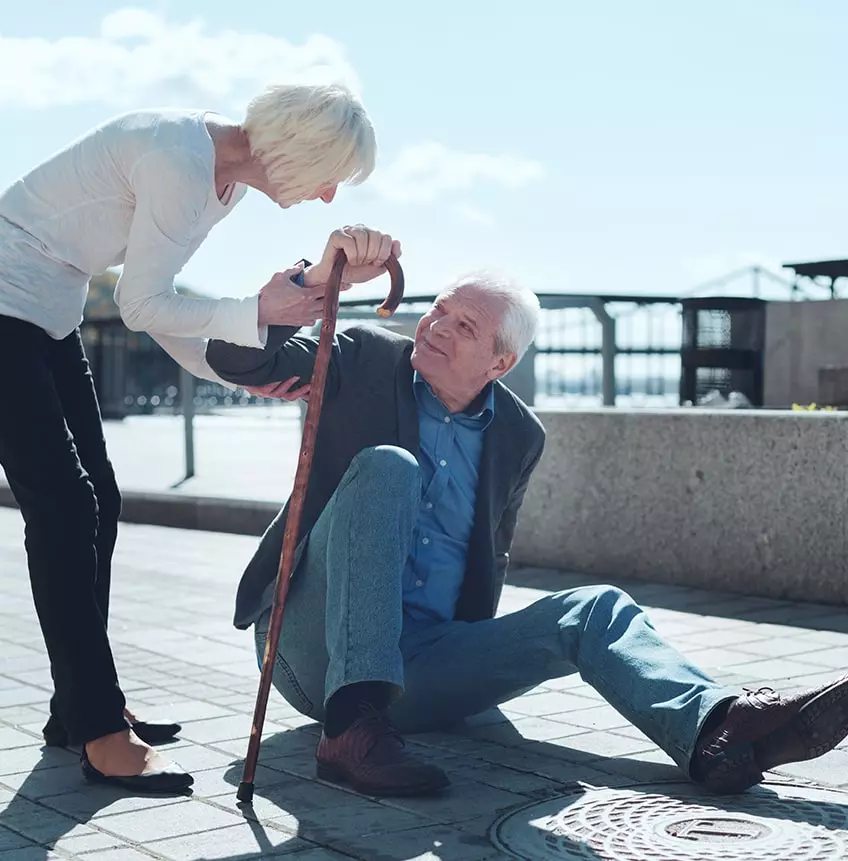
Aging is an inevitable part of life, and as we grow older, our bodies and lifestyles may undergo significant changes. However, one thing remains constant: the importance of staying active and healthy. Maintaining physical and mental well-being in your golden years can greatly enhance your quality of life. In this blog article, we'll explore some valuable tips for staying active and healthy in old age.
1. Hiking to new heights:
Many elderly individuals lace up their boots and hit the trails, exploring the great outdoors and scaling mountains. Hiking not only provides physical exercise but also fosters a deep connection with nature, instilling a sense of peace and accomplishment.
Find YOUR ideal care home NOW!
2. Pedaling into the sunset:
Cycling has captured the hearts of elderly enthusiasts who pedal through picturesque landscapes, promoting cardiovascular health and offering a low-impact workout ideal for maintaining fitness and enjoying the freedom of the open road.
3. Marathons and beyond:
Some seniors challenge themselves by participating in marathons, showcasing incredible endurance and determination. Crossing the finish line is not only a physical achievement but also a testament to the indomitable human spirit.
4. The joy of team sports:
Team sports like tennis, golf, and pickleball provide camaraderie, mental stimulation, and opportunities for friendly competition, helping seniors stay sharp and agile while enjoying social interaction.
5. Water activities and aquatic adventures:
Water-based activities offer excellent full-body workouts with reduced joint impact. Seniors enjoy swimming, snorkeling, and paddleboarding, relishing the soothing embrace of water while staying active.
6. Mindful activities:
Yoga, tai chi, and meditation promote mental and emotional well-being, enhancing flexibility, balance, and mindfulness while fostering inner peace and relaxation.
7. Championing healthy aging:
Active elderly individuals challenge stereotypes of aging and inspire others to prioritize health and well-being. Their stories remind us that age is no barrier to adventure, fitness, and personal fulfillment.
Mindful Activities for Elderly Wellness
| Activity | Physical Benefits | Mental & Emotional Benefits |
|---|---|---|
| Yoga | Increases flexibility, balance, and muscle tone. | Reduces stress, promotes relaxation, and enhances focus. |
| Tai Chi | Improves posture and joint mobility. | Encourages mindfulness and emotional stability. |
| Meditation | Regulates breathing and lowers blood pressure. | Fosters inner peace and improves cognitive function. |
| Chair-Based Exercises | Enhances circulation and supports joint mobility. | Improves mood and relieves anxiety. |
| Dance Therapy | Increases stamina, coordination, and muscle tone. | Encourages self-expression and social connection. |
The active lifestyles of elderly enthusiasts inspire us to embrace life's journey with enthusiasm and to savor the boundless possibilities that come with an active and vibrant lifestyle. Age is not a limitation but an opportunity to explore new horizons, test our limits, and celebrate the joy of movement at any stage of life.
FAQ:
1. What are the best exercises for seniors?
Low-impact activities like walking, cycling, swimming, yoga, and tai chi are ideal for improving mobility and health.
2. Is it safe for seniors to participate in team sports?
Yes, as long as they choose age-friendly sports like golf, tennis, or pickleball, and consult a doctor before participating.
3. How does staying active benefit elderly individuals?
Regular physical activity enhances cardiovascular health, builds muscle strength, improves mobility, and boosts mental well-being.
4. Can seniors participate in marathons?
Yes, many seniors participate in 5K runs, half-marathons, or full marathons with proper training and a healthy lifestyle.
5. What is the best low-impact exercise for joint pain?
Swimming and cycling provide excellent cardiovascular benefits with minimal impact on joints, making them ideal for seniors with arthritis.
6. How does exercise help with mental health?
Exercise releases endorphins, reducing stress, anxiety, and depression while improving mood and cognitive function.
7. How can seniors stay active with limited mobility?
Chair yoga, seated exercises, stretching, and water-based activities are excellent options for those with mobility issues.
8. How often should seniors exercise?
Experts recommend at least 150 minutes of moderate-intensity activity per week, including strength and balance exercises.
9. What are some fun ways for seniors to stay active?
Dancing, gardening, nature walks, and playing with grandchildren keep seniors engaged while promoting movement.
10. What precautions should seniors take before starting an exercise routine?
They should consult their healthcare provider, start with low-intensity activities, stay hydrated, and listen to their body’s needs.
Need help finding a care home?
Senior Home Plus offers free personalized guidance to help you find a care facility that suits your health needs, budget, and preferred location in the UK.
Call us at 0203 608 0055 to get expert assistance today.
Search for Care Homes by Region
| East Midlands | Eastern | Isle of Man |
| London | North East | North West |
| Northern Ireland | Scotland | South East |
| South West | Wales | West Midlands |
| Yorkshire and the Humber |
Share this article :
Latest posts
You are looking for an establishment for your loved one ?
Get availability & prices
Fill in this form and receive
all the essential information
We would like to inform you of the existence of the opposition list for telephone canvassing.










